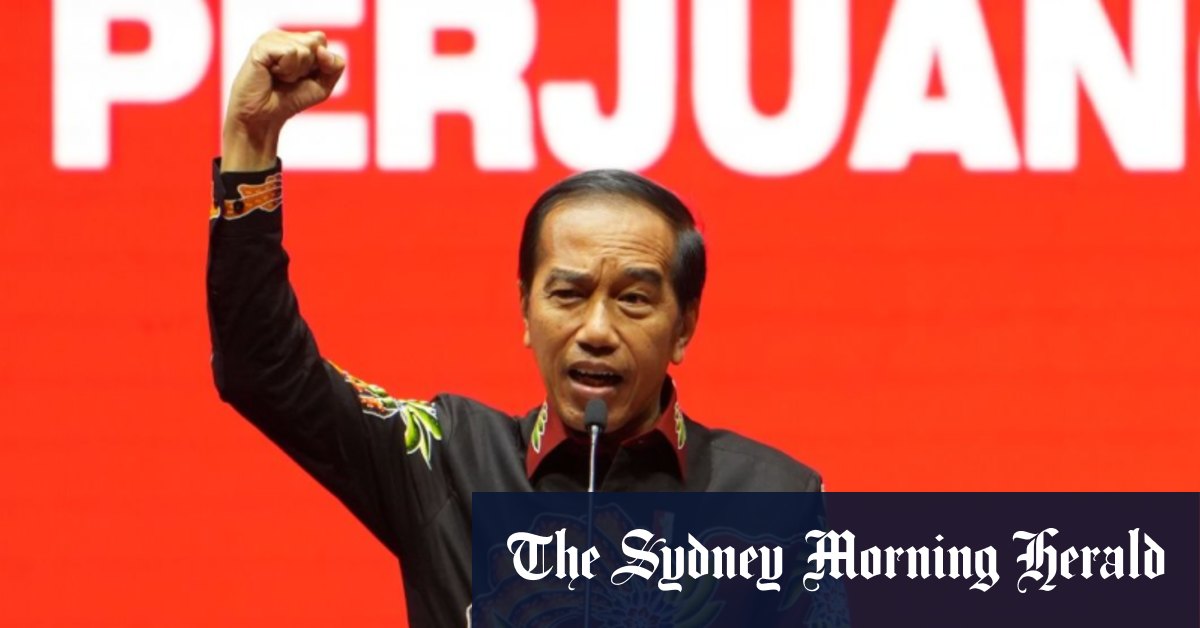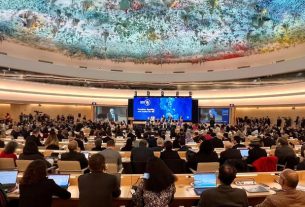Singapore/Jakarta: President Joko Widodo says he deeply regrets gross human rights violations committed in Indonesia in the past, among them an anti-communist purge in 1965 and 1966 in which 500,000 people were murdered, indicating his government would issue compensation to families to achieve reconciliation.
Having begun his final full year in office, Widodo, known as Jokowi, addressed the darkest chapter in his country’s history on Wednesday, listing 12 atrocities between the 1960s and 2003 including the forced disappearances of protesters against the Suharto government and the shooting of civilians by the military in incidents in Aceh and Papua.
Indonesian President Joko Widodo, speaks during the Democratic Party of Struggle’s (PDI-P) 50th-year anniversary event in Jakarta, on Tuesday. Behind him the word “struggle”.Credit:Bloomberg
“With a clear mind and earnest heart, I, as Indonesia’s head of state, admit that gross human rights violations did happen in many occurrences, and I deeply regret these human rights abuses,” he said.
“I have deep sympathy and empathy for the victims and victims’ families. Therefore, first of all, the government and I are trying to restore the victims’ rights in a fair and wise manner without negating the judicial settlement. Second, the government and I hope that serious human rights will no longer occur in Indonesia in the future.”
Indonesia has long been grappling with the brutality of its past, most notably with the mass killings of 1965-66 and the circumstances in which they took place.
More than half a million people are estimated to have been massacred in a matter of months and a million others imprisoned in a campaign triggered by the kidnapping and execution of six army officers that was wrongly blamed on the Indonesian Communist Party (the PKI) and branded an attempted coup.
Australia, the United States and Britain were found by a civil tribunal in The Hague in 2016 to have been complicit in the attacks by repeating the false propaganda of the Indonesian armed forces. The military was led by Suharto then. He would go on to rule for 32 years.

An Indonesian soldier convicted of murder, centre, leaves court in 2000, after a landmark human rights tribunal convicted 24 soldiers and one civilian of massacring 57 villagers during an anti-rebel operation in Banda Aceh the year before.Credit:AP
Widodo was speaking after receiving a report from a government-led taskforce on human rights abuses he commissioned last year.



